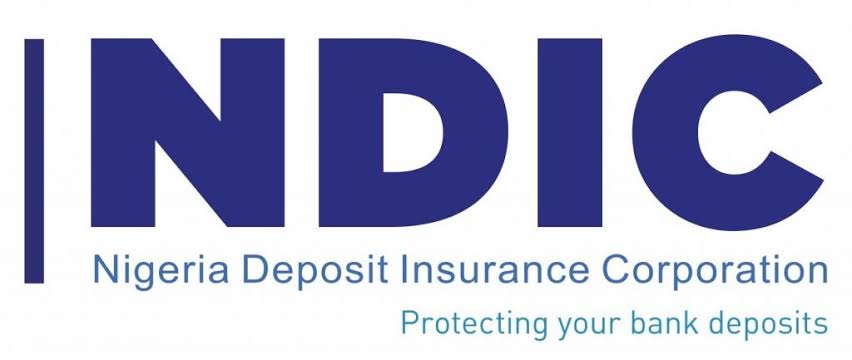In a move aimed at bolstering financial stability and protecting depositors, the Nigerian Deposit Insurance Corporation (NDIC) has intensified its collaboration with the judiciary to expedite the prosecution of failed financial institutions and recover depositors’ funds.
This development was announced by NDIC Managing Director, Bello Hassan, during the 19th Abuja International Trade Fair held on Monday.
The trade fair, themed “Mobility: Options for Transport, Trade Finance, and Taxation,” served as a platform for Hassan to highlight NDIC’s efforts in strengthening legal processes for addressing bank failures and ensuring prompt compensation for affected depositors.
Hassan revealed that NDIC’s renewed focus on judicial collaboration has already resulted in the resolution of long-standing legal cases.
More notably, the corporation has declared 100% liquidation dividends to uninsured depositors of over 20 closed banks, a significant milestone in the banking sector.
During his address, Hassan underscored the essential role deposit insurance plays in maintaining confidence within Nigeria’s financial system, especially during periods of uncertainty.
He noted that NDIC has been instrumental in stabilizing the banking sector by ensuring that depositors are swiftly compensated when banks fail.
“The importance of deposit insurance cannot be overstated in a financial system where confidence is essential.
It acts as a safety net that reassures depositors, builds trust in the banking system, and helps to prevent bank runs during periods of uncertainty,” Hassan said.
He further explained that NDIC’s commitment to resolving banking sector failures aligns with the provisions of both the Banks and Other Financial Institutions Act (BOFIA) 2020 and the NDIC Act 2023.
Bank failures in Nigeria have been a recurrent concern, with stakeholders increasingly calling for accountability from board directors implicated in these collapses.
The growing demand for legal action reflects the need for stronger governance and oversight in the banking sector to prevent future crises.
Hassan reassured Nigerians that NDIC is taking proactive steps to address the impunity of bank directors responsible for these failures.
According to him, the corporation is implementing measures to prosecute directors who contributed to bank collapses, with the goal of promoting accountability and financial stability.
He stated, “The corporation has strengthened its collaboration with the judiciary to expedite the prosecution of failed institutions.
This has resulted in the resolution of long-standing cases and the declaration of 100 per cent liquidation dividends to uninsured depositors of over 20 closed banks.”
Hassan also mentioned that NDIC has employed Alternative Dispute Resolution (ADR) mechanisms to enhance its liquidation activities and improve debt recovery processes.
Citing the recent closure of Heritage Bank as an example of NDIC’s efficiency, Hassan noted that 84.98% of depositors with Bank Verification Number (BVN)-linked accounts have been paid to date.
He praised the corporation’s prompt response, emphasizing that insured deposits were credited directly to depositors’ alternate accounts without requiring forms or physical visits to NDIC offices.
“In an unprecedented achievement, NDIC commenced payments to depositors within four days of Heritage Bank’s closure,” he added.
“By leveraging depositors’ BVN as unique identifiers, NDIC has been able to credit insured amounts of up to N5m directly.”
Hassan highlighted that the recent increase in deposit insurance coverage from N500,000 to N5m has significantly reduced the negative impact on depositors affected by bank failures.
The President of the Abuja Chamber of Commerce and Industry, Emeka Obegolu, also lauded NDIC’s commitment to safeguarding depositors and fostering confidence in Nigeria’s banking system.
He emphasized the corporation’s crucial role in ensuring economic growth by facilitating trade and investment.
Represented by the chamber’s Director-General, Agaba-Idu Jideani, Obegolu said, “Today, we celebrate not just an institution but a cornerstone of our nation’s financial stability.
The NDIC has been a critical player in safeguarding depositors, promoting confidence in our banking system, and ensuring the soundness of the financial sector.”
He added that NDIC’s focus on transparency, trust, and financial prudence aligns with the aspirations of the Abuja Chamber of Commerce, particularly in creating an enabling environment for businesses to thrive in Nigeria.
As the 19th Abuja International Trade Fair progressed under the theme “Mobility: Options for Transportation, Trade Finance, and Taxation,” Obegolu stressed the importance of a stable financial system in facilitating the efficient movement of goods, services, and capital, which are key drivers of economic growth.
“The NDIC’s efforts in protecting depositors and promoting a robust banking system are crucial not only for economic progress but also for enabling seamless trade and investment, which strengthens the foundation of national development,” he said.
Do you want to share a story with us? Do you want to advertise with us? Do you need publicity for a product, service, or event? Contact us on WhatsApp +2348183319097 Email: platformtimes@gmail.com
We are committed to impactful investigative journalism for human interest and social justice. Your donation will help us tell more stories. Kindly donate any amount HERE




